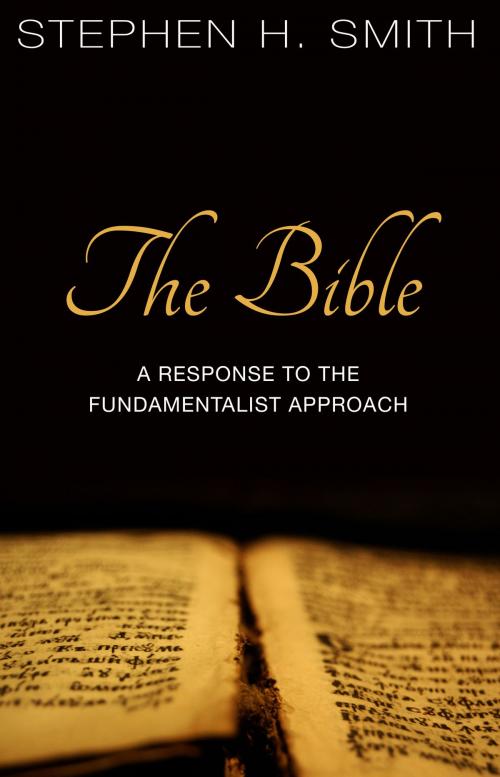The Bible: A Response to the Fundamentalist Approach
Nonfiction, Religion & Spirituality, Bible & Bible Studies, Study| Author: | Stephen H. Smith | ISBN: | 9781788031080 |
| Publisher: | Troubador Publishing Ltd | Publication: | December 28, 2017 |
| Imprint: | Matador | Language: | English |
| Author: | Stephen H. Smith |
| ISBN: | 9781788031080 |
| Publisher: | Troubador Publishing Ltd |
| Publication: | December 28, 2017 |
| Imprint: | Matador |
| Language: | English |
This book is divided into four sections. The first, Introductory Issues, consists of two chapters, one outlining the standard fundamentalist position on the Bible, and the other summarising the nature of the Bible itself - not a single book of holy writ, but a compendium of sixty-six books which evolved over hundreds of years, and whose canon was not finally fixed until late in the fifth century A.D. Section 2 tackles the five 'fundamentals' of the Christian faith decided upon at the 1895 Niagara conference of American Christian Evangelicals: namely, the verbal inerrancy of Scripture, the divinity of Christ, the Virgin Birth, the atonement, and the Second Coming of Christ. Part 3, A Few More Fundamentals, considers problems with the Genesis creation stories, the nature of prophecy, miracles, and resurrection. Finally, Section 4 deals with further relevant issues, including the question of whether the historical Jesus can be recovered, whether Paul can be considered the first Christian, what is 'good' about the Good Book, and the value of the Bible for today. An appendix, The Dynamic Text, demonstrates that during the first few centuries of the Church, there was no fixed text as such, but a dynamic text history which produced thousands of textual variants. It is not the aim of this book to discredit or disparage the Bible in any way, and its greatness as a body of literature is in no way to be diminished. Indeed, it is a fundamentalist reading of the Bible that undermines its true profundity. A level-headed scholarly approach reveals the hidden fruits that can so often be missed when considering the Bible only from the viewpoint of faith.
This book is divided into four sections. The first, Introductory Issues, consists of two chapters, one outlining the standard fundamentalist position on the Bible, and the other summarising the nature of the Bible itself - not a single book of holy writ, but a compendium of sixty-six books which evolved over hundreds of years, and whose canon was not finally fixed until late in the fifth century A.D. Section 2 tackles the five 'fundamentals' of the Christian faith decided upon at the 1895 Niagara conference of American Christian Evangelicals: namely, the verbal inerrancy of Scripture, the divinity of Christ, the Virgin Birth, the atonement, and the Second Coming of Christ. Part 3, A Few More Fundamentals, considers problems with the Genesis creation stories, the nature of prophecy, miracles, and resurrection. Finally, Section 4 deals with further relevant issues, including the question of whether the historical Jesus can be recovered, whether Paul can be considered the first Christian, what is 'good' about the Good Book, and the value of the Bible for today. An appendix, The Dynamic Text, demonstrates that during the first few centuries of the Church, there was no fixed text as such, but a dynamic text history which produced thousands of textual variants. It is not the aim of this book to discredit or disparage the Bible in any way, and its greatness as a body of literature is in no way to be diminished. Indeed, it is a fundamentalist reading of the Bible that undermines its true profundity. A level-headed scholarly approach reveals the hidden fruits that can so often be missed when considering the Bible only from the viewpoint of faith.















